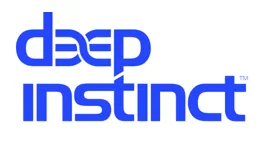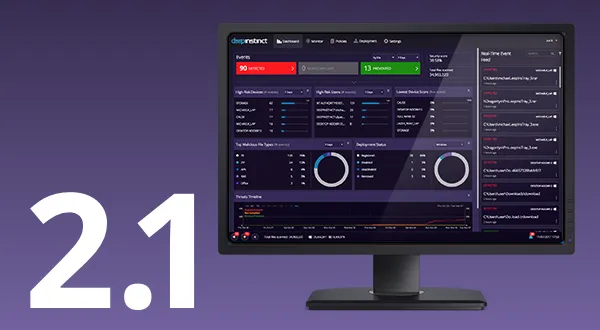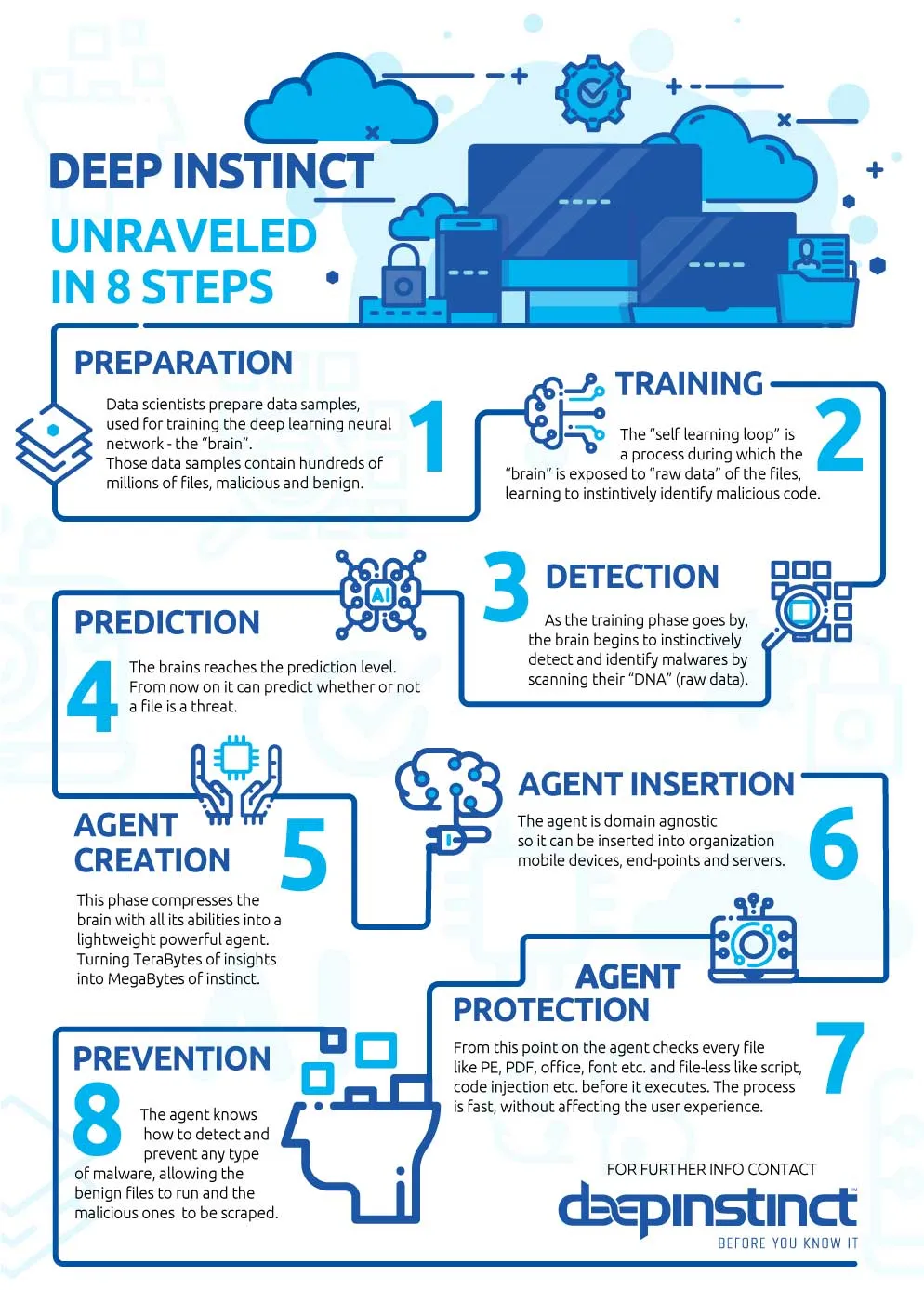
Real-time zero‑day threat prevention across cloud, NAS, apps & endpoints powered by deep learning & GenAI.
Vendor
Deep Instinct
Company Website


Overview
Deep Instinct's DSX is a Zero-Day Data Security (ZDDS) solution designed to proactively prevent unknown and zero-day threats across cloud, NAS, applications, and endpoints. Leveraging a purpose-built deep learning framework (DSX Brain) and a GenAI-powered explainability engine (DSX Companion), DSX delivers real-time threat prevention and detailed insights into attack behaviors. With lightning-fast verdicts under 20 milliseconds and a false positive rate of less than 0.1%, DSX ensures robust protection without compromising performance. Its architecture supports seamless integration into existing infrastructures, providing comprehensive security across diverse environments.
Features and Capabilities
- DSX Brain (Deep Learning Framework):
- Utilizes deep learning to identify and prevent zero-day threats.
- Achieves over 99% efficacy with a sub-0.1% false positive rate.
- Delivers real-time verdicts in under 20 milliseconds.
- Operates independently without relying on cloud-based threat intelligence.
- Requires only 1-2 updates per year, reducing operational overhead.
- DSX Companion (DIANNA - GenAI Explainability Engine):
- Provides detailed, AI-driven explanations of detected threats.
- Enhances Security Operations Center (SOC) efficiency with actionable intelligence.
- Supports rapid response to emerging threats through comprehensive analysis.
- Deployment Flexibility:
- Compatible with cloud environments such as Amazon S3 and Amazon FSx for NetApp.
- Integrates seamlessly with Network-Attached Storage (NAS) solutions like Dell EMC and NetApp ONTAP.
- Secures applications, including SaaS and custom-built solutions.
- Protects endpoints across various devices and operating systems.
- Privacy and Compliance:
- Ensures data privacy by processing threats locally, without external data transmission.
- Supports compliance with stringent regulatory requirements.
- Operational Efficiency:
- Reduces Total Cost of Ownership (TCO) through efficient scanning and minimal infrastructure demands.
- Simplifies management with a unified console for monitoring and policy enforcement.